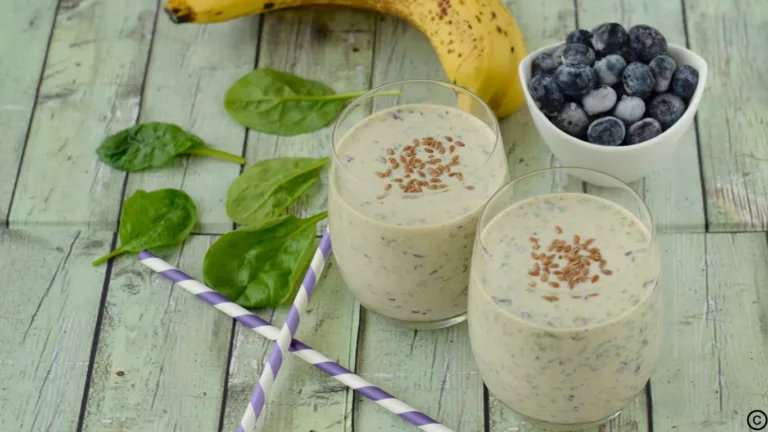Is Ice Cream Bad for GERD? – A Comprehensive Guide
Let me be honest: there was a time I couldn’t imagine giving up ice cream. It was my go-to treat on stressful nights and sunny weekends. But after battling GERD for over a year, I learned the hard way that not all comfort foods are, well, comforting. If you’ve ever had a scoop of your favorite flavor only to be rewarded with chest burn or sour burps an hour later, you’re not alone. Let’s unpack the real deal on whether ice cream is friend or foe when it comes to acid reflux—and why some flavors might hit harder than others.
How Ice Cream Affects Acid Reflux (GERD)

At first glance, ice cream seems harmless. It’s cold, soft, and feels soothing going down. But that soothing sensation can be deceiving. Ice cream contains several ingredients that may trigger acid reflux symptoms:
- High fat content: Full-fat dairy slows digestion and relaxes the lower esophageal sphincter (LES), which allows acid to sneak up the esophagus.
- Sugar overload: Sugar doesn’t directly cause reflux, but it can contribute to inflammation and bloating, both of which can exacerbate symptoms.
- Dairy: Many with GERD have undiagnosed lactose intolerance or dairy sensitivity, adding to the discomfort.
According to Mayo Clinic, fatty and dairy-heavy foods like ice cream are common GERD triggers. That said, not all ice cream is created equal, and some types may be more tolerable than others.
The Truth About Vanilla Ice Cream and Reflux

Of all the flavors, vanilla ice cream is often assumed to be the “safe” choice. It’s usually less acidic, contains fewer additives, and is sometimes lower in fat. But the question is: does that make it GERD-friendly?
In my experience—and I’ve tested this more times than I care to admit—vanilla ice cream is hit or miss. On days when my reflux was calm and I ate a small scoop, I felt fine. But after a large serving or eating it late at night? Hello, heartburn.
The key seems to be portion size and timing. Eating even “safe” ice cream close to bedtime can increase your risk of reflux during sleep. If you’re curious about other bedtime-related GERD issues, this guide on sleeping positions for acid reflux relief offers practical strategies that helped me minimize nighttime flare-ups.
Why Some People Swear Ice Cream Helps Heartburn

Yes, you read that right—some folks claim ice cream actually soothes their heartburn. So what gives?
The cold temperature of ice cream can create a short-term numbing effect on the esophagus and throat, which may feel like relief. But it’s important to recognize this is temporary and doesn’t address the underlying reflux issue. That “cooling” sensation might trick you into thinking it’s helping, while it’s quietly relaxing the LES and slowing digestion.
This false sense of relief is similar to the debate around milk and reflux. You can explore the science behind that in our article on whether milk helps or hurts heartburn.
GERD-Friendly Ice Cream Alternatives That Actually Work

Okay, here’s the good news. Giving up traditional ice cream doesn’t mean abandoning frozen dessert altogether. After months of trial and error, I’ve found several satisfying alternatives that didn’t send my stomach into meltdown mode:
- Almond milk ice cream: Light, creamy, and low in fat. Stick to unsweetened or lightly sweetened options.
- Coconut-based ice cream: Surprisingly gentle for many people. Just watch for high-fat versions with lots of added sugar.
- Sorbet (carefully): Some sorbets are fruit-based and acidic, but pear or banana sorbet tends to be more reflux-friendly.
- Homemade frozen banana “nice cream”: Blend frozen bananas with a splash of oat milk. Add gut-soothing ingredients like ginger or chamomile if desired.
Curious about more dairy alternatives? Our guide on almond milk and acid reflux breaks down how it compares to dairy milk.
Hidden Ice Cream Triggers to Watch For

Let’s talk hidden landmines. Even seemingly innocent pints can include additives and toppings that trigger symptoms:
- Chocolate chunks: High in fat and contains theobromine, which weakens the LES.
- Mint flavors: Mint relaxes the LES and is known to worsen reflux.
- Peanut butter swirls: A tricky one. While peanut butter has healthy fats, it can still provoke reflux in sensitive individuals. Learn more in this guide on peanut butter and acid reflux.
- Corn syrup and emulsifiers: These are added for texture but can mess with digestion.
Always read the label, especially for products labeled as “low-fat.” These often add sugar or chemical thickeners that can backfire.
What Experts Say About Cold Foods and Digestion

There’s an old-school belief that cold foods “shock” the digestive system. While that might sound like folklore, there’s some logic behind it. According to research from NIH, temperature changes can influence gastrointestinal motility.
Cold foods can potentially delay stomach emptying, especially when high in fat. For GERD sufferers, this delay gives stomach acid more opportunity to rise into the esophagus—leading to that familiar burn or throat discomfort.
If you want to improve digestion alongside dietary tweaks, take a look at these helpful lifestyle changes for acid reflux that have proven effective for many of us dealing with this on the daily.
When Is the Best Time to Eat Ice Cream if You Have GERD?

Timing can be everything. One thing I’ve learned from journaling my GERD symptoms is that eating ice cream at night is basically a guarantee for reflux. Why? Because when you lie down soon after eating, gravity can’t help keep your stomach acid in place. Even a few spoons of your favorite flavor can turn into a long night of discomfort.
If you’re going to indulge, try this:
- Eat it earlier in the day — ideally before 4 PM.
- Stick to a small portion — think kid-sized scoop, not a double cone.
- Walk around after — a light stroll can help move digestion along.
This is in line with GERD meal timing strategies, which emphasize spacing meals and snacks well before bedtime. For me, a small serving around lunchtime is far less problematic than anything after dinner.
Do Low-Fat Ice Creams Really Help?

This is where it gets tricky. Low-fat or “light” ice creams can be better for GERD, but you’ve got to read between the lines. Many low-fat varieties add extra sugar, gums, or stabilizers to maintain texture—which can actually make symptoms worse.
Here’s what to look for in a GERD-friendlier ice cream option:
- Fat content under 5g per serving
- No artificial sweeteners (sorbitol and xylitol can cause bloating or gas)
- Dairy-free base, such as almond or oat milk
- Limited ingredients — the simpler, the better
I personally like brands that use coconut or almond milk with minimal ingredients. One thing I always do? A tiny test portion first. If my stomach’s cool with it, then I know it’s a safe treat going forward. If you’ve had issues with hidden ingredients, you’ll want to check out this guide to GERD-friendly snacks for better label-reading tips.
What About Lactose-Free Ice Cream?

Lactose-free options sound like a safe bet, especially if dairy is a known issue for you. But here’s the catch: lactose-free doesn’t always mean low-fat. And fat, not just lactose, is one of the big GERD triggers.
That said, if you’re lactose-sensitive and have GERD, lactose-free can be part of a more comfortable experience. Look for those that also happen to be low in fat and sugar. You might find relief similar to switching to almond milk or oatmeal for GERD — both offer gentle, soothing alternatives to traditional dairy-heavy meals.
Other Frozen Treats to Consider for GERD Relief

If classic ice cream is giving you grief, you’ve got options that won’t sacrifice that cold-creamy satisfaction. Some alternatives that have worked well for me and others include:
- Banana nice cream – Blend frozen banana with a splash of oat milk, cinnamon, or ginger. It’s sweet, soft, and naturally soothing.
- Chia pudding frozen pops – Mix chia seeds with almond milk and a touch of maple syrup. Freeze in molds for a refreshing, reflux-safe pop.
- Frozen papaya chunks – Papaya contains papain, a digestive enzyme known to support acid balance. Just don’t eat too fast — cold can still be a shock.
These aren’t just reflux-safe, they’re often nutrient-dense and anti-inflammatory. If you’re exploring more plant-forward solutions, you’ll love this guide to fermented foods for GERD — another big shift that helped me personally reduce flare-ups.
Expert Tips for Managing Ice Cream Cravings with GERD

I once asked a registered dietitian (because yes, I got that desperate) if I had to give up ice cream for good. Her response: “No food is forbidden, but some require compromise.”
Here are some of her practical tips I still follow:
- Stick to plain flavors — Avoid mix-ins like cookies, nuts, or fudge.
- Keep a symptom journal — Track your body’s reaction to specific brands or ingredients.
- Pair with a non-triggering meal — Don’t eat ice cream on an empty or overly full stomach.
- Use small bowls or espresso cups — Portion perception makes a huge difference.
It’s all about experimenting within reason. Sometimes I treat myself to a few spoonfuls of banana nice cream with a drizzle of honey, and it satisfies that craving without the regret. If you want to explore more natural management tools, check out this Pillar article on natural GERD relief strategies.
Best Ice Cream Brands for GERD-Sensitive Stomachs

Let’s face it — reading every single label in the freezer aisle gets old. Over the years (and a few unfortunate flare-ups), I’ve found some go-to brands that are generally well-tolerated by those of us with acid reflux. Everyone’s triggers are different, but here are a few that tend to check all the boxes:
- So Delicious Dairy Free – Their coconut milk and oat milk lines are lower in fat than traditional ice cream and use minimal ingredients.
- Nadamoo! – Made with organic coconut milk, and most flavors are gentle on the gut, especially the plain vanilla or strawberry options.
- Cado Avocado Ice Cream – Sounds weird, tastes amazing. It’s made from avocados, giving it a creamy texture without dairy or soy.
- Halo Top Dairy-Free – Lower in sugar and fat, but still double-check labels — some flavors have sugar alcohols, which can cause bloating.
Heads up: not every flavor within these brands is reflux-safe. Chocolate mint? Definitely a no-go for me. But their basic, low-fat, and plant-based options can be a sweet relief — literally.
If you want to learn how other ingredients impact your reflux, especially common treats, this piece on chocolate and GERD is an eye-opener (and a bit of a heartbreaker for chocoholics).
Quick Checklist: GERD-Friendly Ice Cream Guidelines

Before you toss that pint in your shopping cart, run through this quick checklist. It could save you a night of chest-burning regret:
- ✔ Plant-based base (almond, oat, coconut)
- ✔ Low in fat (under 5g per serving)
- ✔ Low added sugar (watch for syrups and artificial sweeteners)
- ✔ No mint, chocolate, or coffee flavors
- ✔ Avoid added toppings like cookies, nuts, or caramel ribbons
- ✔ Enjoy earlier in the day — never as a bedtime snack
Following these tips helped me go from “no more ice cream ever” to “occasional treat with no regrets.” And trust me, after months of missing out on birthdays and summer picnics, that first scoop of coconut vanilla that didn’t set my chest on fire? It was a victory.
Smart Pairings: What to Eat With Your Frozen Treat

If you’re really trying to reduce risk, what you pair with your dessert matters too. I’ve found that eating a small portion of ice cream after a GERD-friendly meal like oatmeal or grilled chicken and rice makes a big difference. Stable blood sugar, reduced gastric pressure — it all helps.
Some soothing pairings:
- Banana slices – naturally low in acid and high in soothing fiber
- Oatmeal cookies (low-fat, low-sugar) – just enough crunch without the reflux triggers
- Chamomile or ginger tea – helps calm the stomach post-dessert
It’s a small thing, but it adds up. Especially when you’re trying to enjoy dessert without turning your night into a battle against your own esophagus.
When Ice Cream Is Absolutely a No-Go

As much as I love finding workarounds, there are times when no amount of “GERD-safe” hacks make ice cream a good idea. For example:
- You’re mid-flare-up – Even the mildest foods can trigger discomfort when your stomach is already irritated.
- You’ve had a high-fat meal – Adding dessert to an already greasy meal is like pouring fuel on the fire.
- You’re lying down within 2 hours of eating – The worst combo: ice cream and Netflix in bed.
If you’re struggling to manage consistent flare-ups, I highly recommend this guide to GERD diagnosis methods so you can work with a provider and pinpoint your specific triggers. Knowing what your body reacts to is half the battle.
Final Scoop: Is Ice Cream Totally Off-Limits with GERD?

Not necessarily — but it definitely depends on how you eat it, what kind you choose, and when you indulge. For me, regular dairy-based, high-fat ice cream is off the table. But a few spoonfuls of almond or oat milk vanilla? That’s still a “yes” — if I time it right and pair it smart.
If you’re not sure where to start, begin small. A tiny serving, early in the day, with a simple meal. Watch your symptoms. Track what works and what doesn’t. GERD doesn’t have to mean the end of dessert — it just means being a little savvier about what’s in your bowl.
And if you’re in the middle of crafting a full GERD-friendly lifestyle, this Pillar article on the best GERD diet plan is a must-read. It’s what helped me finally figure out how to enjoy food again — ice cream included.

Camellia Wulansari is a dedicated Medical Assistant at a local clinic and a passionate health writer at Healthusias.com. With years of hands-on experience in patient care and a deep interest in preventive medicine, she bridges the gap between clinical knowledge and accessible health information. Camellia specializes in writing about digestive health, chronic conditions like GERD and hypertension, respiratory issues, and autoimmune diseases, aiming to empower readers with practical, easy-to-understand insights. When she’s not assisting patients or writing, you’ll find her enjoying quiet mornings with coffee and a medical journal in hand—or jamming to her favorite metal band, Lamb of God.







